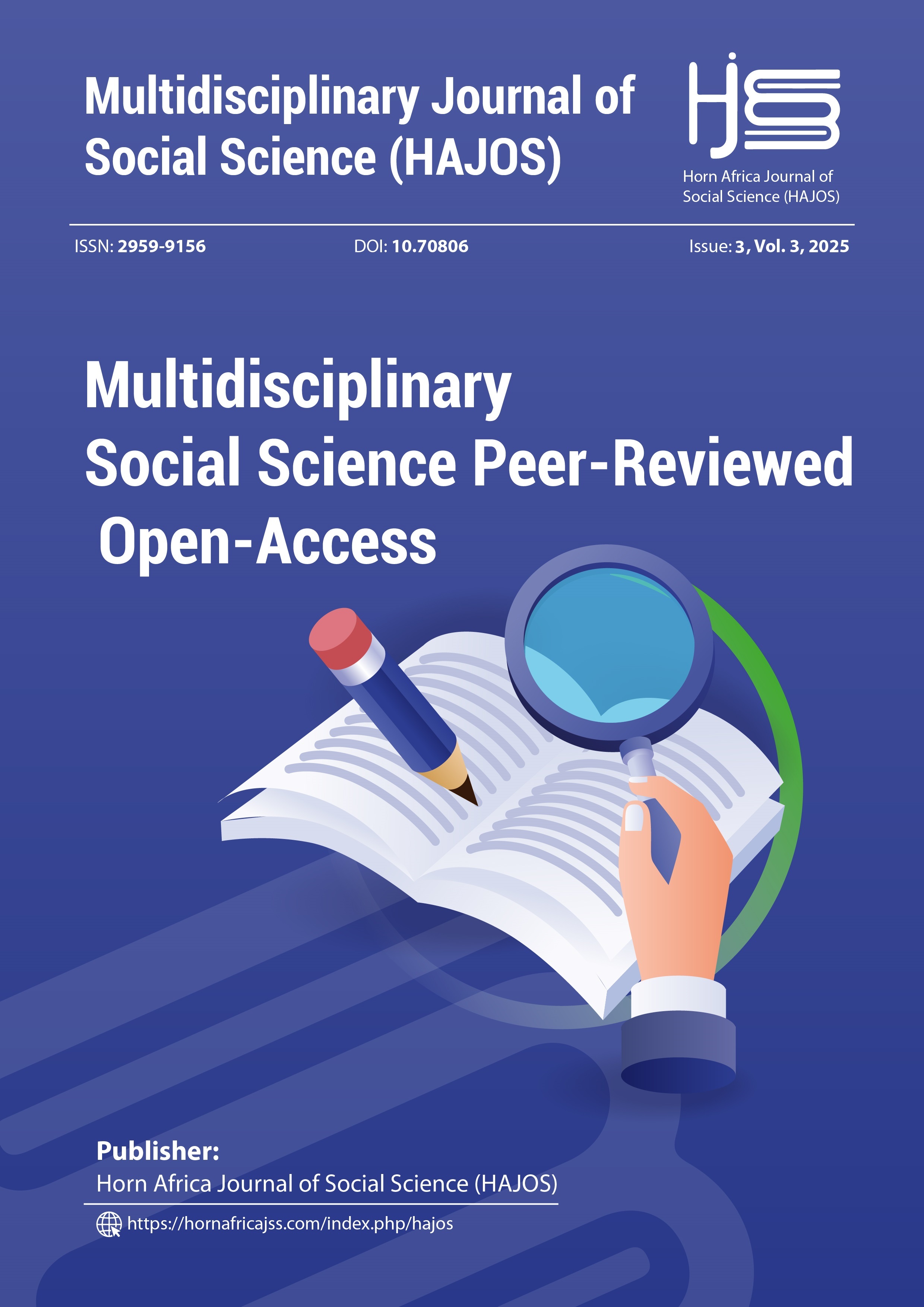Youth Engagement in Reconciliation Processes: Pathways to Sustainable Peace-Building in Somalia
DOI:
https://doi.org/10.70806/mke4d967Keywords:
Youth engagement, Reconciliation processes, Sustainable peaceAbstract
Somalia’s protracted conflict has disproportionately affected young people, who constitute over 70% of the population, yet their potential role as peacebuilders remains underutilized. This study examines youth engagement in reconciliation processes as a pathway to sustainable peace in Somalia. The research aims to explore how Somali youth contribute to reconciliation, the barriers they face, and the strategies needed to enhance their inclusion in peacebuilding. A qualitative methodology was employed, involving twelve semi-structured interviews with key informants, including youth leaders, government officials, academics, and civil society actors. Thematic analysis revealed four major themes: active youth participation in peace initiatives, structural barriers such as unemployment, clan-based exclusion, and political marginalization, the importance of intergenerational collaboration with elders, and significant policy gaps that limit institutional support for youth-led initiatives. Findings indicate that Somali youth are increasingly recognized as agents of reconciliation, organizing inter-clan dialogues, counter-extremism campaigns, and community projects that foster social cohesion. However, systemic exclusion, insecurity, and lack of resources continue to undermine their efforts. The study concludes that sustainable peace in Somalia requires institutionalizing youth engagement through inclusive policies, targeted capacity building, and stronger partnerships between youth organizations, elders, and state institutions. Empowering youth to actively shape reconciliation processes is not only essential for addressing the root causes of conflict but also for ensuring long-term stability and resilience.





